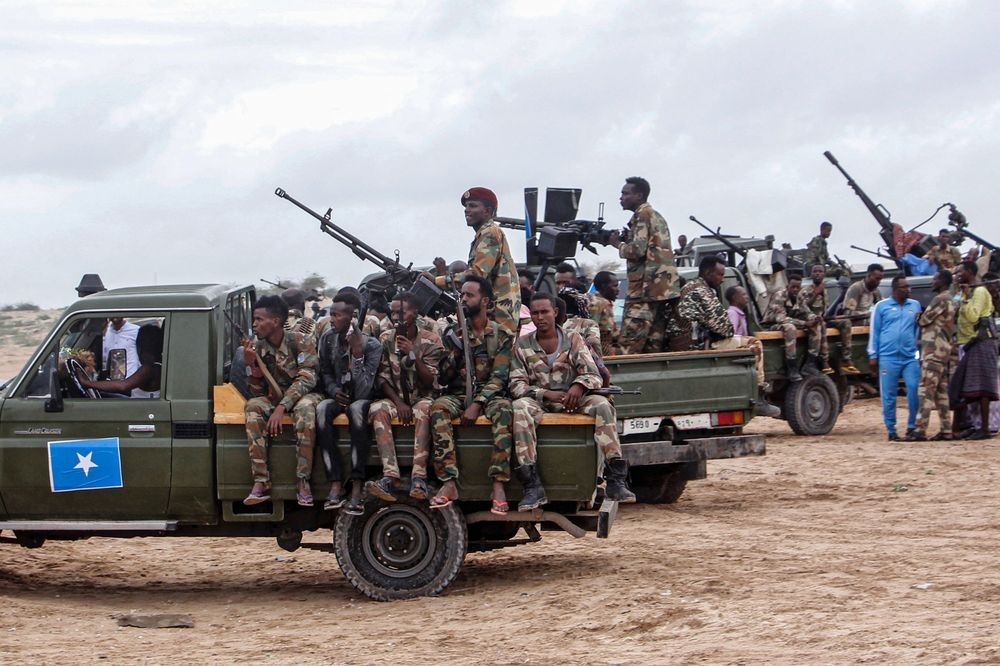Offensive backed by drone support from US and Turkey
Government’s offensive is largest operation in five yearsSomalia’s army, backed by thousands of militia members, have driven al-Shabaab militants out of central areas of the country in the largest offensive against the al-Qaeda-linked group in five years, the government said.
Allied forces captured 50 settlements, including several key villages in central Somalia, covering an area of about 200 square kilometers (77 square miles), Somali Interior Minister Ahmed Moalim Fiqi told reporters in the capital, Mogadishu.
After taking office in May, Somalia’s President Hassan Sheikh Mohamud vowed to escalate the fight against al-Shabaab as it threatened to spread attacks into Ethiopia and carry out more in neighboring Kenya. The rebels reacted with a deadly siege on a hotel in Mogadishu last month.
Somalia has been battling the insurgency since 2006 and suffers regular blasts in the capital and elsewhere. The group’s most violent operations included a 2015 raid on a university campus that claimed at least 147 lives and an assault on Nairobi’s Westgate shopping mall in 2013, which killed 67. In July, it attacked four towns near the border with Ethiopia.
The offensive against the militants has gained momentum this year, aided by President Joe Biden’s decision to send US Special Operations troops back to the country. The US and Turkey provided Somali authorities additional support through drone attacks in the latest moves, according to Ahmed.
Who Are the Al-Shabaab Militants Plaguing Kenya?: QuickTake
A significant part of the army’s offensive focused on the Buq Aqable District that has been “breeding ground and foothold for al-Shabaab,” district governor Ali Jeyte said by phone. The gains were partly due to improved coordination between clan militia in central areas, according to three diplomats familiar with the situation, who asked not to be identified speaking publicly on the details.
This had caused some members of al-Shabaab to defect, the people said. However, initial gains can’t be taken for granted due to underlying conflicts between different militia, a lack of local support for the armed forces and signs that al-Shabaab has already begun to recruit and mobilize in other areas, they added.

